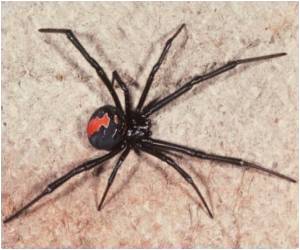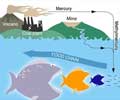The mechanism by which a rare, inherited neurodegenerative disease causes often crippling muscle weakness in men has been identified by researchers.

"We've known since the mid-1990s that Alzheimer's disease, Parkinson's disease and Huntington's disease are caused by the accumulation of misfolded proteins that should have been degraded, but cannot be turned over," said senior author Albert La Spada, MD, PhD and professor of pediatrics, cellular and molecular medicine, and neurosciences. "The value of this study is that it identifies a target for halting the progression of protein build-up, not just in this rare disease, but in many other diseases that are associated with impaired autophagy pathway function."
Of the 400 to 500 men in the U.S. with Kennedy's disease, the slow but progressive loss of motor function results in about 15 to 20 percent of those with the disease becoming wheel-chair bound during later stages of the disease.
Kennedy's disease, also known as spinal and bulbar muscular atrophy, is a recessive X-linked disease men inherit from their mother. Women don't get the disease because they have two copies of the X chromosome. The genetic abnormality causes men to produce a mutant androgen receptor protein, which impairs the body's sensitivity and response to male sex hormones, sometimes resulting in testicular atrophy and enlargement of male breasts.
In experiments with mice, scientists discovered that the mutant androgen receptor protein besides disrupting male reproductive biology also deactivates a protein called transcription factor EB (TFEB) that is believed to be a master regulator of autophagy in nerve and other cell types.
Specifically, the mutant androgen receptor protein in Kennedy's disease binds to TFEB and blocks its ability to mediate the break-down and removal of non-working proteins and aggregated proteins.
Source-Eurekalert
 MEDINDIA
MEDINDIA




 Email
Email





